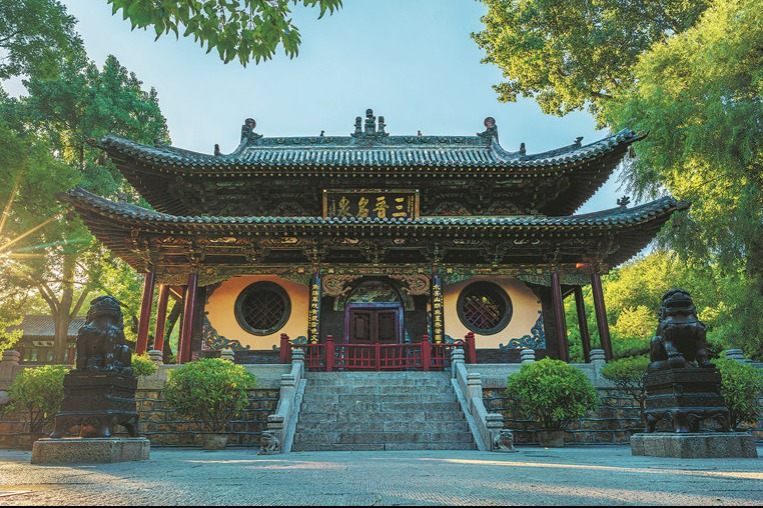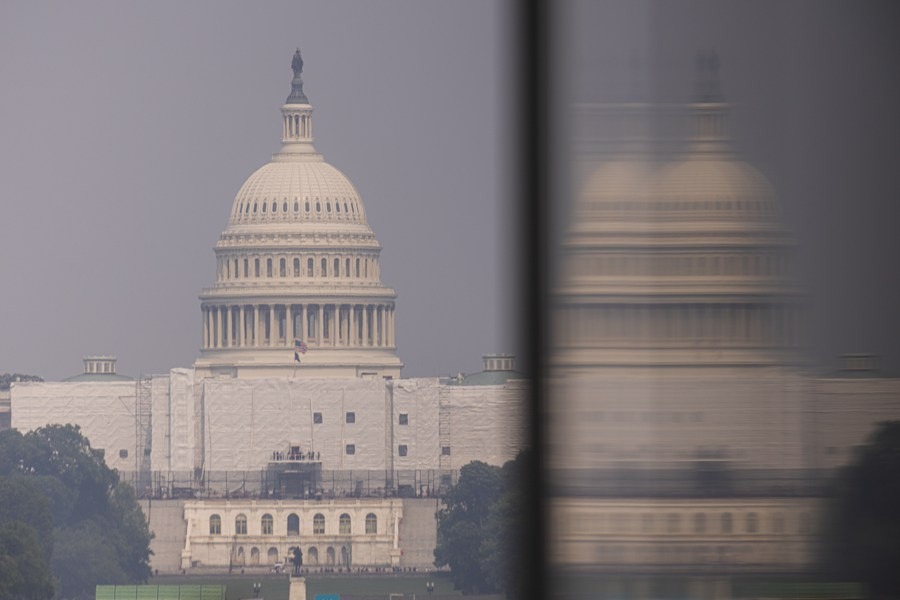Beijing and Islamabad building a community with a shared future


The ongoing five-day visit of Pakistani Prime Minister Shehbaz Sharif to China from Tuesday marks a significant moment in the longstanding and robust partnership between the two countries. This visit, the first by Sharif since the new Pakistani government took office, underscores the deep-rooted ties and strategic cooperation that characterize the relationship between the two neighbors.
The concept of a community with a shared future for mankind, championed by China, finds a tangible embodiment in its relationship with Pakistan, reflecting a partnership built on mutual respect, strategic alignment, and shared aspirations for regional and global peace and prosperity.
Given the significance of Sharif's visit, it is important to consider the historical context and the strategic depth of China-Pakistan relations. Over the years, Sino-Pakistani relations have evolved into an "all-weather strategic cooperative partnership", a term that aptly captures the essence of their ties. Whether in times of peace or crisis, China and Pakistan have stood by each other, demonstrating mutual support and cooperation. Sharif's visit therefore is expected to further consolidate this partnership, with both sides poised to discuss a range of issues crucial to bilateral relations as well as regional stability.
One of the key aspects of Sharif's visit is the discussion on the China-Pakistan Economic Corridor, a flagship project of the Belt and Road Initiative. Launched in 2013, the CPEC has been instrumental in transforming Pakistan's economic landscape. It has led to significant infrastructure development, including the construction and development of roads, highways, power plants and ports, which are aimed at addressing Pakistan's critical energy shortage and improving connectivity.
During the visit, both sides are likely to explore ways to further upgrade and expand CPEC, ensuring that it continues to contribute to Pakistan's economic growth, industrialization and sustainable development.
In addition to infrastructure, the focus will also be on enhancing cooperation in other key areas such as industry, agriculture, new energy and information and communications technology. China's commitment to sharing its technological advancements and expertise with Pakistan is a testament to the collaborative spirit that underpins their relationship. This cooperation is aimed at not only boosting economic growth but also fostering innovation and sustainable development in Pakistan.
In fact, by aligning their development strategies, China and Pakistan are setting an example of how strategic partnerships can drive progress and prosperity.
Security cooperation is another crucial area that will be high on the agenda during Sharif's visit to China. The recent terrorist attacks targeting Chinese nationals in Pakistan have highlighted the importance of enhanced security measures to protect both Chinese and Pakistani citizens involved in CPEC projects.
Both countries are committed to deepening cooperation in the fight against terrorism, ensuring that such incidents do not derail their collaborative efforts. China's unwavering support for Pakistan's fight against terrorism and its efforts to maintain regional stability are indicative of the strong trust and strategic alignment between the two countries.
Sharif's visit to China comes at a time when regional and global dynamics are rapidly evolving. The geopolitical landscape in South Asia is marked by complexities and challenges, and the China-Pakistan partnership plays a crucial role in maintaining regional stability. Both countries share a common vision for peace and development, and their coordinated efforts in multilateral forums such as the United Nations and the Shanghai Cooperation Organization reflect their commitment to upholding fairness and justice on global issues.
Sharif's visit is also expected to strengthen people-to-people relations between the two countries, which are a cornerstone of China-Pakistan relations. Cultural exchanges, educational collaboration and tourism are areas that hold immense potential for deepening mutual understanding and friendship between the people of the two countries. These interactions not only foster goodwill but also build a strong foundation for long-term cooperation. And the emphasis on cultural and educational exchanges is a testament to the holistic approach that both countries adopt in nurturing their relationship.
As a matter of fact, the significance of Sharif's ongoing visit extends beyond bilateral cooperation. It is a reaffirmation of the strategic importance that both countries place on their relationship. The high-level meetings scheduled during Sharif's visit will provide an opportunity for the two sides to engage in comprehensive and in-depth strategic communication. Such interactions are essential for aligning the two countries' visions and strategies, and ensuring their partnership continues to thrive in a rapidly changing world.
Moreover, this visit is a testament to the resilience and adaptability of China-Pakistan relations. Despite the challenges posed by global and regional issues and the growing uncertainties, created by, among other things, the COVID-19 pandemic and terrorism, both countries have demonstrated a remarkable capacity to adapt to the changing times and cooperate on critical issues.
The successful implementation of CPEC projects during these challenging times is a reflection of the two countries' commitment and strategic foresight. The concept of a community with a shared future for mankind is best exemplified by the ironclad partnership between China and Pakistan, a partnership that continues to thrive and evolve, bringing greater benefits to both countries and their peoples.
The author is a founder of Friends of Belt and Road Initiative Forum, an advisor to Pakistan Research Center of Hebei Normal University and a co-founder of the Alliance of China-Pakistan Research Centres.
The views don't necessarily reflect those of China Daily.
If you have a specific expertise, or would like to share your thought about our stories, then send us your writings at opinion@chinadaily.com.cn, and comment@chinadaily.com.cn.


































